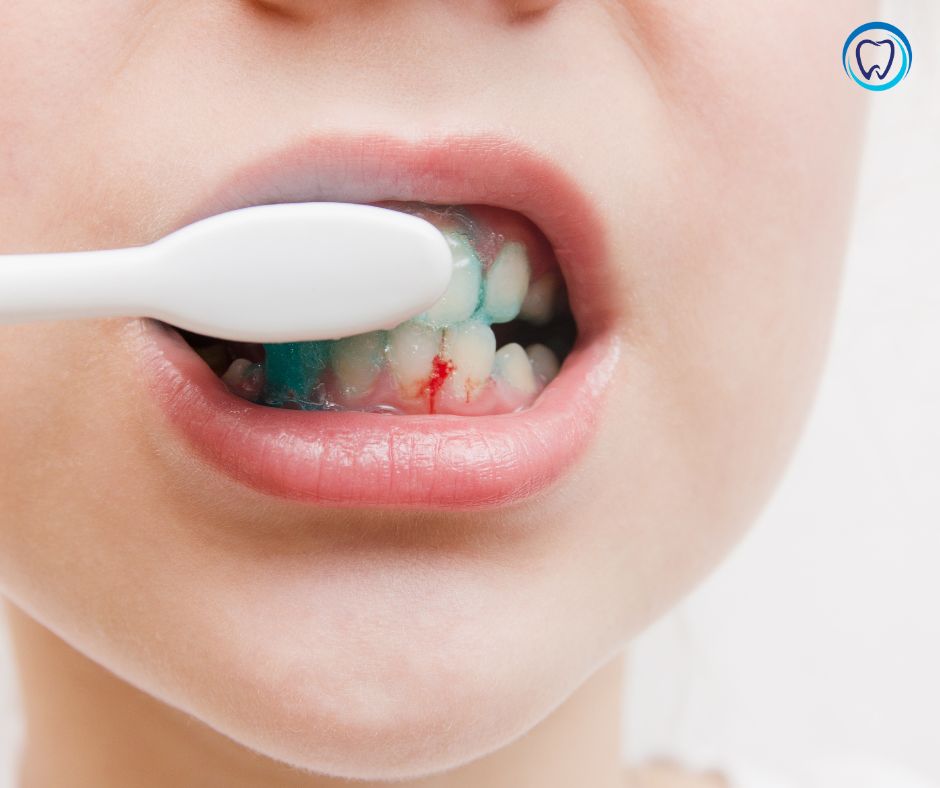Blog Page & News Articles
Bleeding Gums When You Brush: Causes and What You Can Do
Author: Dr Behnam Aminnejad. Posted: 27.01.25
Bleeding gums can be alarming, especially when you notice blood after brushing or flossing. While it’s not uncommon, it’s a sign that something might be amiss with your oral health. Understanding the causes of bleeding gums and knowing what to do can help you address the issue before it escalates.
Common Causes of Bleeding Gums
Gingivitis
Gingivitis, the earliest stage of gum disease, is one of the most common causes of bleeding gums. It occurs when plaque builds up on the gumline, leading to inflammation, redness, and tenderness. Left untreated, gingivitis can progress to periodontitis, a more severe form of gum disease.
Brushing Too Hard
Using excessive force or a toothbrush with hard bristles can damage your gums, causing them to bleed. While it’s important to brush thoroughly, a gentle technique and a soft-bristled toothbrush are more effective and less harmful.
Flossing Aggressively or Infrequently
If you’ve just started flossing or don’t floss regularly, you may notice some bleeding. This typically happens because the gums are not used to the contact and may be slightly inflamed.
Vitamin Deficiencies
A lack of vitamin C or vitamin K can lead to gum problems, including bleeding. These vitamins play crucial roles in maintaining healthy gums and aiding blood clotting.
Hormonal Changes
Hormonal fluctuations during pregnancy, menstruation, or menopause can make gums more sensitive and prone to bleeding.
Medications
Certain medications, like blood thinners, can increase the likelihood of bleeding gums. Be sure to inform your dentist about any medications you’re taking.
Poor Oral Hygiene
Inadequate brushing and flossing allow plaque and tartar to accumulate, which can irritate the gums and lead to bleeding.
Underlying Health Conditions
Conditions like diabetes, leukemia, or blood clotting disorders can sometimes manifest as bleeding gums. If the issue persists, it’s essential to consult a healthcare professional.
What to Do About Bleeding Gums
1. Improve Your Oral Hygiene Brush twice a day using a soft-bristled toothbrush. Floss daily to remove plaque and debris from between your teeth. Rinse with an antimicrobial mouthwash to reduce bacteria.
2. Schedule a Dental Check-Up Regular dental visits are essential for identifying and treating the root cause of bleeding gums. Your dentist can assess your gum health, clean away plaque and tartar, and provide personalized advice.
3. Eat a Balanced Diet Include plenty of fresh fruits, vegetables, and leafy greens to boost your intake of vitamins C and K. Avoid sugary snacks and drinks that can exacerbate plaque buildup.
4. Be Gentle Use gentle brushing techniques and avoid over-scrubbing your gums. A soft-bristled toothbrush is often the best choice for protecting your gum tissue.
5. Stay Consistent with Flossing If your gums bleed when you start flossing, don’t give up! Consistency is key—bleeding usually stops after a week or two as your gums become healthier.
6. Monitor Your Overall Health If gum bleeding persists, consult your doctor. There could be an underlying health condition contributing to the problem.
7. Manage Stress High stress levels can weaken your immune system, making it harder for your gums to fight off infections. Practice stress-reducing activities like meditation or exercise.
When to See a Dentist
If your gums continue to bleed despite improved oral hygiene, or if you experience other symptoms like bad breath, gum recession, or loose teeth, it’s time to see a dentist. These could be signs of periodontal disease, which requires professional treatment.
Healthy Gums, Healthy Smile
Bleeding gums are your body's way of telling you that something needs attention. By taking proactive steps, such as improving your oral care routine and visiting your dentist, you can prevent bleeding gums from turning into a more serious problem.
At City Dental Practice, we’re here to help! Book your next dental check-up today to ensure your gums stay healthy and your smile remains bright.
Read more of Dr Behnam Aminnejad's dental care articles and tips: Back to Blog

Why Choose Us?
- Master's degree in Endodontic (Root canal treatment)
- Almost 30 years experience
- All dental treatments are individually tailored to your specific needs
